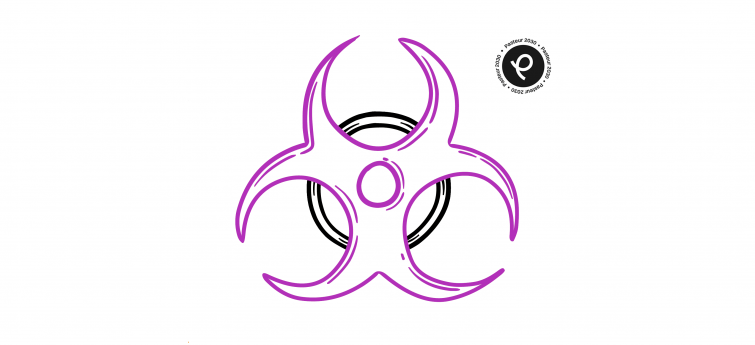
 PASTEUR2030
PASTEUR2030
An Institutional Biosafety Committee offering dedicated support to research teams

A new multidisciplinary body to provide effective support
Research plays a central role in the missions pursued by the Institut Pasteur, an organization with a daily commitment to improving global health through the efforts of the people who form its team. This requires an organizational structure that provides for open, ethical, collaborative, innovative and responsible research.
The Institut Pasteur is committed to conducting research that meets criteria of scientific excellence and safety for the scientists involved, the wider staff community and the environment, while reflecting ethical and social responsibility concerns. All research conducted at the Institut Pasteur must comply fully with applicable regulations.
The Institut Pasteur has a Risk Prevention Department tasked with assessing and analyzing occupational risks associated with research, ensuring compliance with applicable risk prevention regulations, recommending suitable preventive measures, and supporting scientists and the institution as a whole with essential administrative procedures. The Risk Prevention Department also liaises with supervisory authorities such as the French Agency for the Safety of Medicines and Health Products (ANSM), the Ministry of Higher Education and Research, and the French Nuclear Safety Authority.
The various legal and regulatory obligations related to biosafety, which have been transposed into internal procedures, are complex and constantly changing. They sometimes give rise to questions and confusion for staff concerned, and difficulties interpreting regulations can make it hard for research teams to implement them.
In February 2025, an Institutional Biosafety Committee (CIB) was established to provide dedicated support for teams. The committee deals with questions and interpretation issues, working collectively to resolve them and adopting remedial processes to overcome deadlock situations in the field of biological risk prevention.
The CIB is chaired by Christophe Préhaud (PhD) and is composed of 8 to 10 members appointed by the Institut Pasteur senior management team. The chair receives requests from scientists and from the Risk Prevention Department or other departments.
This new body is part of a wider process of change at the Institut Pasteur aimed at simplifying the rules and procedures associated with scientific research.

Interview with Christophe Préhaud, chair of the Institutional Biosafety Committee
![]() How do you define biosafety at the Institut Pasteur, and how do national, European and international regulations apply at different levels?
How do you define biosafety at the Institut Pasteur, and how do national, European and international regulations apply at different levels?
Biosafety is central to the Institut Pasteur's research. The Institut Pasteur is exemplary in this area and is a widely admired role model. But the expansion of regulatory requirements at both the national and European levels is weighing ever more heavily on research teams, which are having to deal with increasingly time-consuming and complex administrative procedures. This is leading to difficulties understanding what is required and causing tensions, which can and should be avoided. The Institutional Biosafety Committee was set up to respond to this situation by introducing remedial processes that facilitate dialog between scientists and regulatory bodies and finding solutions to the most pressing problems. To borrow a saying that the Department for Transformation and Strategic Projects are fond of using, we are there to "oil the wheels."
![]() Who are the current members of the committee?
Who are the current members of the committee?
We are lucky in that the CIB is a multidisciplinary committee, with a range of expertise in different and complementary areas.

• Scientists: Sabine Thiberge, Claire Pujol, Nathalie Aulner, Meriem Paris, Barbara Gayraud-Morel, Sabrina Coqueran and Philippe Afonso
• Coordinator of the Dual-Use Research Committee and mediation: Fanny Momboisse
• An engineer from the Risk Prevention Department: Elodie Debray
• A legal expert: Anne-Laure Morin
• and myself.
And we form a committed and enthusiastic team!
![]() What types of issue has the committee had to deal with since it was set up four months ago?
What types of issue has the committee had to deal with since it was set up four months ago?
The nature of the committee's work means that we adopt a strictly confidential approach to the issues we deal with as they can involve individuals. But without betraying that confidentiality, I can say that our first cases covered subjects as wide-ranging as GMOs, premises that need to be rebuilt, new scientific activities to be developed, and processes that need modernizing and simplifying for biosafety laboratories.
![]() Which support departments do you work with?
Which support departments do you work with?
Depending on the topic, the committee may work with any of the Institut Pasteur departments, especially the Scientific Affairs Department and the Department of Corporate Social Responsibility and Technical Resources, as well as the senior management and the Senior Executive Division.
![]() How do you interact with the various institutional committees (e.g. committees that set the Institut Pasteur's priorities, research review committees or task forces on research practices) and other bodies related to your areas of intervention?
How do you interact with the various institutional committees (e.g. committees that set the Institut Pasteur's priorities, research review committees or task forces on research practices) and other bodies related to your areas of intervention?
We have only just started our work and so far we have been in demand from campus for urgent topical matters. But we want our work to be as cross-cutting as possible, and in the coming year we aim to establish links with the other committees on campus.
![]() Do you report regularly on the committee's work to provide a record of its achievements?
Do you report regularly on the committee's work to provide a record of its achievements?
We will produce an annual report for senior management and Institut Pasteur staff. The Institutional Biosafety Committee is there to help all staff, facilitate research and help with the development of the Strategic Plan. We all have our eyes on Pasteur 2030 and will be working together to get there.
![]() Anyone wishing to refer an issue to the committee can email the office at the following address: cib-bureau@pasteur.fr
Anyone wishing to refer an issue to the committee can email the office at the following address: cib-bureau@pasteur.fr
 Find out more
Find out more
More information in organization memo 0145
More information in decision memo 1033
More information in decision memo 1447